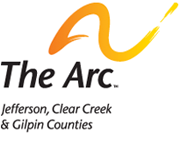Video Transcript - 6 Principles of IDEA: Introduction
The Individuals with Disabilities Education Act (IDEA) is a law that makes available a free appropriate public education (FAPE) to eligible children with disabilities in the least restrictive environment (LRE) throughout the nation.
IDEA governs how states and public agencies provide early intervention, special education, and related services to more than 6.5 million eligible infants, toddlers, children, and youth with disabilities.
Over the last 40+ years, we have advanced our expectations for all children, including children with disabilities. Classrooms have become more inclusive with access to general education and accountability for improving educational results and outcomes.
Significant progress has been made toward protecting the rights and meeting the individual needs of students.
The outcome or purpose of IDEA is: To prepare the child for further education, employment, and independent living so children are prepared to lead productive and independent adult lives to develop economic self-sufficiency.
To achieve this outcome, children with disabilities must learn basic reading, writing, arithmetic, and spelling skills. The IEP needs to address the child’s deficiencies, and close the achievement gap between students with disabilities and nondisabled kids.
We invite you to explore and learn about the 6 principles of IDEA.

